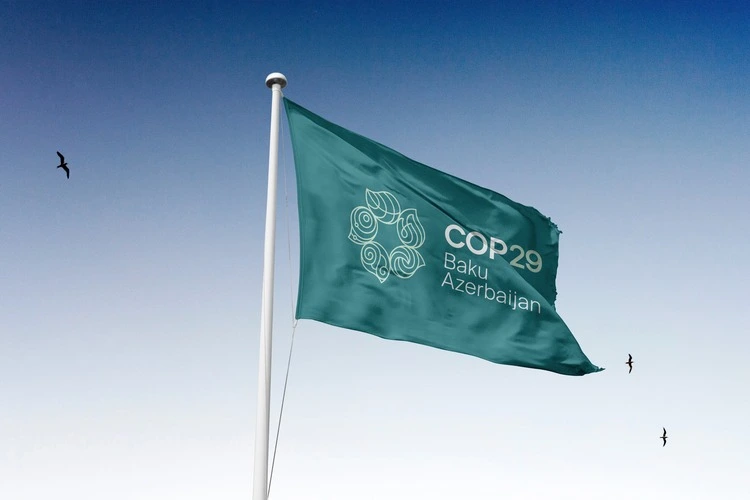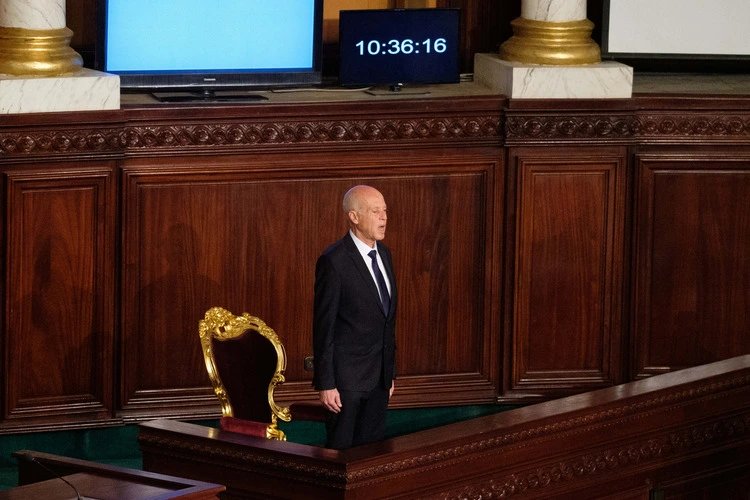

Geopolitical Hotspot
Tim Marshall considers the results of last year’s elections around the world
The year 2024? Hot. Indeed, the hottest year on record, and yet around the world, we went cold on measures to combat climate change. This was partially shown in the results of the ‘Year of Elections’, when about half of the planet’s population went to the polls.
For many voters in industrialised countries, the higher prices and bills affecting their daily lives trumped concerns about climate change, and some politicians cashed in. President- elect Donald Trump called climate change ‘a big hoax’, while President Putin (re-elected last year) remains determined to pump as much oil as possible. The EU elections saw a sharp rise in votes for right-wing parties arguing that measures to reduce greenhouse gases were too onerous on ordinary people and prevent growth.
Across the continent, the Greens lost vote share, while in the UK, the Labour Party quietly dropped a £28 billion green investment promise a few weeks ahead of its election victory.
Enjoying this article? Check out our related reads:
The underlying narrative was concessions made by establishment parties to persuade voters not to vote for populism because their concerns were being heard. Being seen to be green has become less fashionable. Many senior figures didn’t bother to show up at the Cop 29 Climate Summit in Azerbaijan. European Commission president Ursula von der Leyen was too busy, as were Modi, Trudeau, Scholz, Macron, Lula da Silva, Biden and others.
Papua New Guinea’s prime minister, James Marape, boycotted the event, calling it a ‘complete waste of time’. He may have a point. Azerbaijan’s president, Ilham Aliyev, used the conference to call oil and gas a ‘gift from God’. Still, the UK’s Keir Starmer was there, along with about 50,000 others who flew into oil-rich Baku, some on private jets.
The year saw a lot of voting, not all of it free and fair, and not all in full support of democracy. Opinion polls show a decline in the belief that democratic government matters. The concept of people within a state being part of one shared political community, albeit with sometimes differing views, declined.

India’s election, won by Narendra Modi’s BJP party for the third time in a row, was both a triumph of democracy and the making of Hindu nationalism mainstream. Another example came in October, when Austria’s centre-right OVP Party formed a coalition government even though the far-right, pro-Russia, anti- immigrant Freedom Party had won the election.
The other parties refused to cooperate with it. In the UK, Reform won four million votes but only a handful of seats. It’s now well inside that system but remains shunned by the traditional parties. The same is true of Marine Le Pen’s National Rally in France. However, in many countries across Europe, deals are being done with what were considered extremists just a few years ago.
Africa saw an overall decline in free elections and an increase in violence, albeit with a bright exception. Tunisia’s president, Kais Saied, showed himself to be either remarkably popular, or remarkably ‘lucky’ when he won 90.7 per cent of the vote. Not to be outdone, Rwanda’s President Kagame was re-elected with 99 per cent, helped by three candidates being barred from standing.
Algeria’s President Tebboune can only dream of such a win after gaining his second term with a mere 84.3 per cent. Togo’s President Gnassingbe felt 19 years at the top wasn’t enough and his party’s parliamentary victory allowed him to remain in power – perhaps inspired by his father’s term in office: 1967-2005.

The military juntas in Burkina Faso and Mali simply postponed elections.
Multinational African organisations mostly turned a blind eye to vote rigging. Mozambique’s presidential election in October saw numerous allegations of huge fraud as the incumbent, Daniel Chapo, won with 71 per cent of the vote. His party, Frelimo, has been in power for 49 years.
EU observers said there were widespread irregularities, but the Southern African Development Community declared ‘nothing to see here’, which may have been partially true because it only monitored one per cent of Mozambique’s 25,000 voting stations. Almost 80 people have been killed during continuing opposition protests.
Botswana was an exception. The Botswana Democratic Party lost power after 58 years, but President Masisi was straight on the phone to his rival, Duma Boko of the Umbrella for Democratic Change, with the words ‘I respect the will of the people’.
But what, especially in industrialised democracies, if the will of many people is to raise their living standards by reducing expenditure on policies designed to combat climate change? Trump taps into that, and so does Nigel Farage, Marine Le Pen, Victor Orban, et al. If you don’t accommodate that pressure, you might not get elected; if you do, what about the future?




